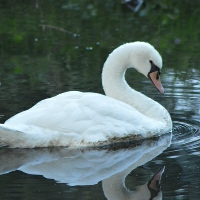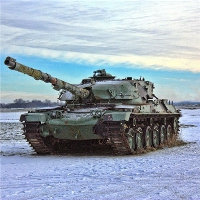Departed Days 分别时刻
in the year of our lord, 1867, there came to work at no. 145 broadway a thin, prematurely1 old and gray young man of not more than twenty-six years. no one seemed to know anything about him, and he soon dropped into our ranks and came and went day after day without eliciting2(诱发,刺激) much interest on the part of those around him. he was very quiet, and seldom spoke3 unless addressed, but then in a low and sweetly musical voice. that he was intelligent and well educated everybody conceded(承认,退让) , but he manifested(显示,证明) no disposition4(性情,倾向) to mix with the general throng5(人群,众多) ; and thus it happened that the general throng, without thinking much about it, came to speak of him with more respect than the appellation6(名称,称呼) given him would imply as “old george phipps,” and to leave him pretty much to himself. he sat right across the aisle7(通道,走廊) from me, and i often studied his sad though pleasant face, and ere long(不久,很快) put his name down in my mind with those of some other men i had met, and whom i may briefly8 describe by stating that they were men with histories. yes, i was moderately sure that george phipps had a history, and i longed to know what it was, and give him my young and boyish(男孩的) friendship for all it was worth. but months passed, and we knew no more of our associate than we did when he came, except that he was a magnificent operator, and that he was as sweet as a day in june, though as sad, as i have indicated, as the melancholy9(忧愁,悲哀) and sighing days of the later autumn. his voice and manner always reminded me of the falling of the hectic10(兴奋的,狂热的) october leaves, the surging of the autumn wind through leafless branches. but the glorious sunbeams(阳光) were always resting on his head, making sweet and loveable his life and character.
one night we had a severe sleet11(雨夹雪) storm, and hardly a wire was left intact in any direction. the full force had been ordered on duty waiting for the lines to come “o.k.” and sal about in little knots, telling stories and speculating on the chances of being kept on duty until morning. for a time i formed one of a little company, but not being particularly interested in the topic of discussion, and seeing george phipps sitting alone, i approached him. after a short exchange of common-places, i asked, abruptly12:
“are you a married man, mr. phipps?”
the reply came slowly: “no.”
if that little monosyllable(单音节词) had been kept on ice for a century it could not have been colder. i saw that i had been imprudent(轻率的,鲁莽的) , that i had awkwardly touched a chord in the man’s heart that was sacred. i was very sorry, and being very young and inexperienced in hiding my emotions, i made a failure of it. the tears came into my eyes, my lip trembled, and i felt wretched. he saw the state of things at a glance, and said, kindly13:
“i beg your pardon, john, i didn’t mean to be rude, but i had just been thinking of events scarcely six years old, but such bitter, hopeless memories that it seems as if i had lived a thousand years since the page on which they are written was turned down in the book of fate—turned down forever.”
he paused, and i said nothing. “i have never spoken of these things,” he continued, “but i think i was something like you at twenty; how sadly i have changed since then!”
he stopped again, and then continued: “i don’t mind telling you my story, if you would care to hear it;” and as i eagerly answered, “do tell me,” he resumed: “it is a sad story, my little friend, it concerns a woman. some say, hearts do not break, others, that women’s hearts do sometimes, but that a man’s is tough, and can bear disaster to the affections without material injury. may be it is true, generally speaking, but there are exceptions—the exceptions, i suppose,” he said, musingly14, “that philosophers(哲学家) would tell you prove the rule. you see me to-day old and prematurely gray. i have never been a dissipated(沉迷酒色的,放荡的) man. i inherited a fine constitution from my father. i have lived regularly and have never suffered from disease, but i am as you see me, nevertheless. do you ask me if i am heart broken? i can not say that, but i have mourned over dead and buried hopes for five years, and god’s beautiful world will never look so fair and sweet again to me as the hour when i close my eyes upon it forever.”
he moved slightly in his chair, and said, as if studying on the matter, “it looks like a case of broken heart, don’t it?”
 幸福的港湾 2024-04-18 13:59:23
幸福的港湾 2024-04-18 13:59:23









